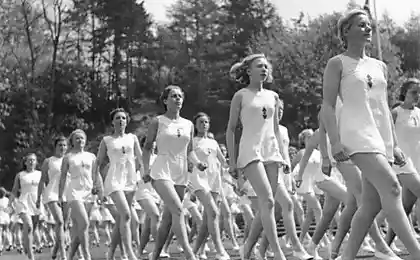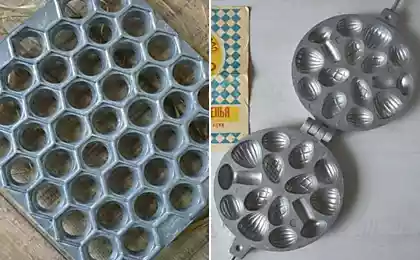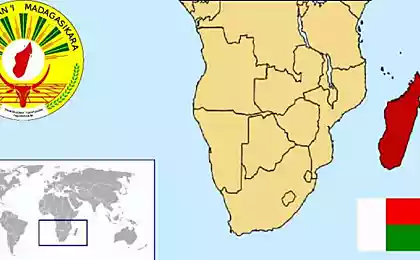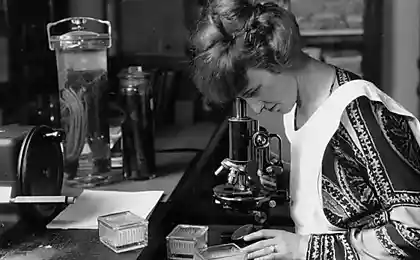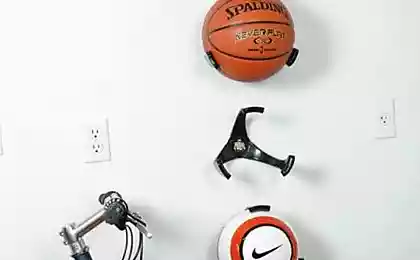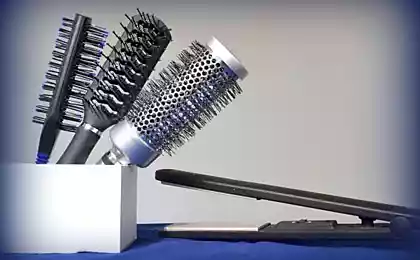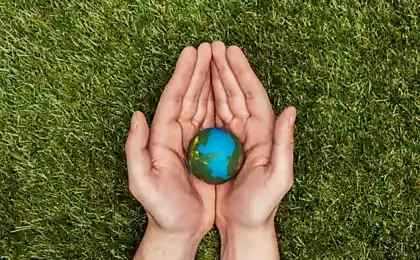560
This device has saved the lives of hundreds of thousands of women in Africa. This is no exaggeration ...
Women around the world are constantly faced with various gender barriers when it comes to health and stay safe. Women are at higher risk of contracting HIV / AIDS, malaria, pneumonia, as well as sexual assault and related complications. Most of these issues are beyond our control and are linked to deep-rooted cultural practices, and therefore takes decades to change something.
However, there are some surprisingly simple solutions with a surprisingly impressive results. Menstruation is a huge obstacle faced by women around the world, and in the case of improper care practices often leads to serious health problems.
In Kenya, the average cost of a pack of sanitary napkins is about $ 1. Although this may seem minimal sum, the average daily income of unskilled workers is about $ 1, 5, and this means that women do not have enough money for the purchase of hygiene products. < br />
For lack of financial opportunities for women and girls may resort to using alternative methods - such as leaves, paper, cloth, wool, pieces of mattress stuffing, even dirt. Moreover, these methods do not work, but they can lead to serious infections and discomfort. Not to mention how uncomfortable to wear it all during the day.
Ensuring access to adequate hygienic facilities allow women to stay safe, and not to sacrifice their working capacity at work, in school or everyday life.
Wonderful way out for the residents of African steel cup for menstruation. They are made of silicone and are designed to collect, instead of absorbing menstrual fluid, and generally it is much better for the health of the woman. Unlike tampons and pads that contain harmful chemicals and bleaches, menstrual cups do not have any adverse side effects, and there is no threat of toxic shock syndrome.
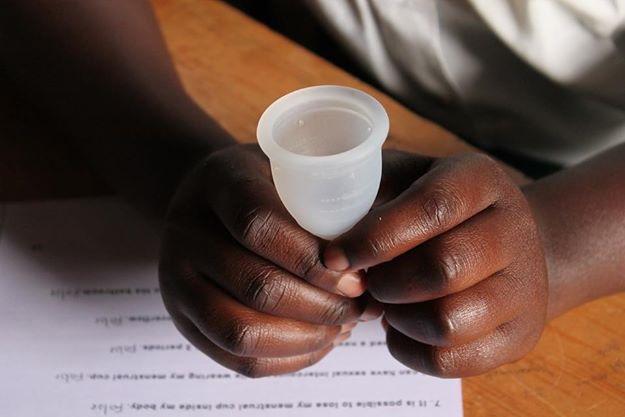
Cups provide comfort and 12:00 have a shelf life of 10 years, which makes them economically wise product. For women in North America it promotes the critical days in comfort. For women in developing countries, it can change their lives.
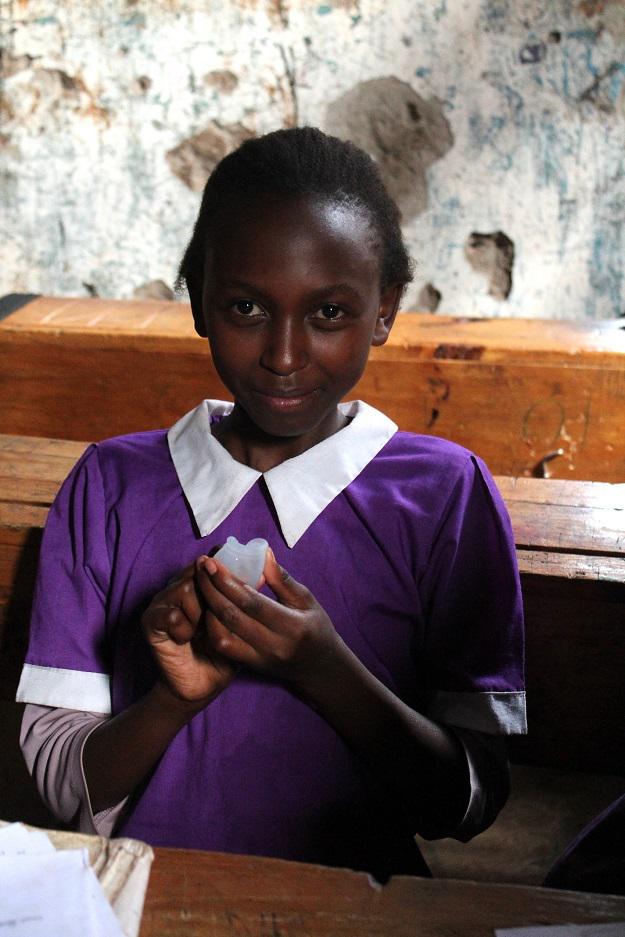
Cups for menstruation also significantly affect the lives of schoolgirls. Health Management Program Femme International distributes menstrual cups along with the basic education and health materials schoolgirls in East Africa to help them stay safe.
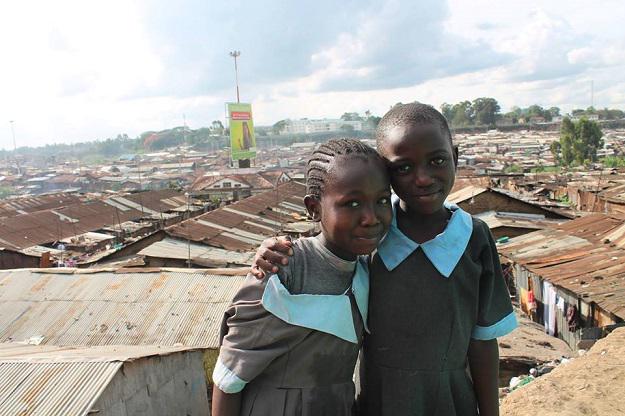
For us, this seems trivial, because being in our country, we can afford to make a choice. But no such choice in African women, and therefore we can only hope that this product really replaces and is even better than the means by which we use. Share this article with others, perhaps it will teach them to appreciate what you have!
www.huffingtonpost.ca/sabrina-rubli/menstrual-cups-east-africa_b_6313436.html?ncid=fcbklnkushpmg00000063
However, there are some surprisingly simple solutions with a surprisingly impressive results. Menstruation is a huge obstacle faced by women around the world, and in the case of improper care practices often leads to serious health problems.
In Kenya, the average cost of a pack of sanitary napkins is about $ 1. Although this may seem minimal sum, the average daily income of unskilled workers is about $ 1, 5, and this means that women do not have enough money for the purchase of hygiene products. < br />
For lack of financial opportunities for women and girls may resort to using alternative methods - such as leaves, paper, cloth, wool, pieces of mattress stuffing, even dirt. Moreover, these methods do not work, but they can lead to serious infections and discomfort. Not to mention how uncomfortable to wear it all during the day.
Ensuring access to adequate hygienic facilities allow women to stay safe, and not to sacrifice their working capacity at work, in school or everyday life.
Wonderful way out for the residents of African steel cup for menstruation. They are made of silicone and are designed to collect, instead of absorbing menstrual fluid, and generally it is much better for the health of the woman. Unlike tampons and pads that contain harmful chemicals and bleaches, menstrual cups do not have any adverse side effects, and there is no threat of toxic shock syndrome.

Cups provide comfort and 12:00 have a shelf life of 10 years, which makes them economically wise product. For women in North America it promotes the critical days in comfort. For women in developing countries, it can change their lives.

Cups for menstruation also significantly affect the lives of schoolgirls. Health Management Program Femme International distributes menstrual cups along with the basic education and health materials schoolgirls in East Africa to help them stay safe.

For us, this seems trivial, because being in our country, we can afford to make a choice. But no such choice in African women, and therefore we can only hope that this product really replaces and is even better than the means by which we use. Share this article with others, perhaps it will teach them to appreciate what you have!
www.huffingtonpost.ca/sabrina-rubli/menstrual-cups-east-africa_b_6313436.html?ncid=fcbklnkushpmg00000063
Here's how to play your children! With these parents just do not get bored ...
He decided to file for divorce ... But the last request of his wife became for him a lesson for life!




